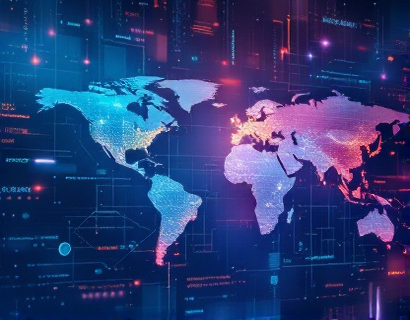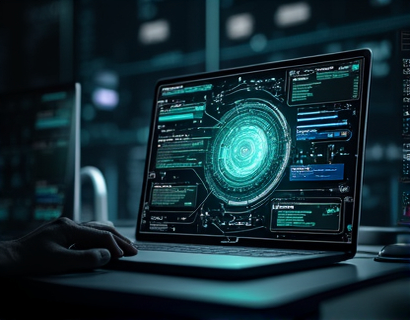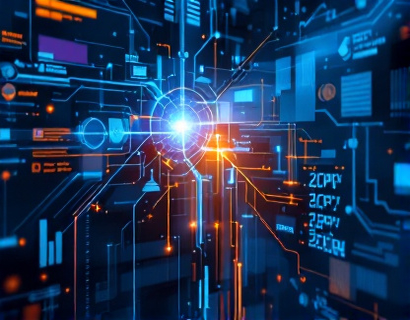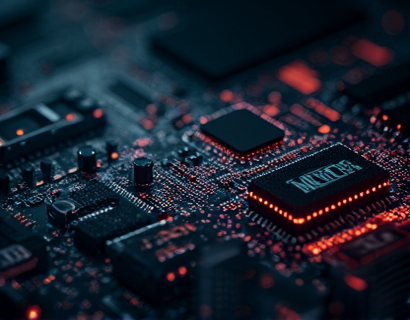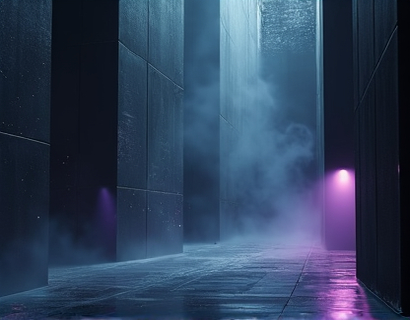Secure and Personalized Online Memorials: Harnessing AI and Blockchain for Lasting Tributes
The digital age has transformed numerous aspects of our lives, including how we remember and honor our loved ones who have passed away. Traditional memorials, while cherished, often lack the personalization and security that modern bereaved families seek. The integration of Artificial Intelligence (AI) and Blockchain technology offers a revolutionary approach to creating secure, personalized online memorials. This article delves into the future of memorial creation, exploring how these cutting-edge technologies can craft lasting tributes that provide meaningful remembrance and peace of mind for those left behind.
Understanding the Need for Secure and Personalized Memorials
The loss of a loved one is one of life's most profound experiences, leaving a void that cannot be easily filled. Traditional memorials, such as headstones and physical altars, serve as tangible points of remembrance but are limited in their ability to capture the essence of the person who has passed. Online memorials, on the other hand, offer a dynamic and accessible platform for sharing memories, stories, and tributes. However, the digital nature of these memorials introduces concerns about security, privacy, and the permanence of the content. This is where the combination of AI and Blockchain technology becomes invaluable.
AI in Memorial Creation: Personalization at Its Best
Artificial Intelligence has the capability to analyze vast amounts of data, learn from patterns, and generate content that resonates with individuals. In the context of online memorials, AI can be used to create highly personalized tributes that reflect the unique life and personality of the deceased. Here are some ways AI contributes to this process:
- Content Generation: AI algorithms can compile and curate content from various sources, such as social media, personal blogs, and family archives, to create a comprehensive and authentic tribute.
- Emotional Analysis: AI can analyze the tone and sentiment of written content, ensuring that the memorial reflects the emotional nuances of the person's life.
- Interactive Elements: AI can power interactive features like virtual photo albums, timelines, and guest books, allowing visitors to engage with the memorial in meaningful ways.
- Language Translation: For memorials that aim to reach a global audience, AI can translate content into multiple languages, ensuring that loved ones from different parts of the world can participate in the remembrance.
By leveraging AI, memorial creators can ensure that the tribute is not only a reflection of the deceased's life but also a living, breathing entity that evolves and grows over time, much like the memories it preserves.
Blockchain in Memorial Creation: Ensuring Security and Permanence
Blockchain technology, known for its role in cryptocurrencies, offers a decentralized and immutable ledger that can revolutionize the way we store and manage digital memorials. Here’s how Blockchain enhances the security and longevity of online tributes:
- Immutable Records: Once data is recorded on a Blockchain, it cannot be altered or deleted. This ensures that the memorial remains intact and unchanged, providing a permanent record of the person's life.
- Decentralized Storage: By storing memorial data across a network of computers rather than a single server, Blockchain reduces the risk of data loss due to server failures or cyberattacks.
- Access Control: Blockchain allows for precise control over who can access and contribute to the memorial, ensuring that only authorized individuals can make changes or add content.
- Transparency and Trust: The transparent nature of Blockchain builds trust among users, as they can verify the authenticity and integrity of the memorial content.
The combination of AI and Blockchain creates a synergistic effect, where the personalization capabilities of AI are secured and preserved by the immutable and decentralized nature of Blockchain. This dual approach ensures that online memorials are not only deeply personal but also secure and enduring.
Benefits of AI and Blockchain in Memorial Creation
The integration of AI and Blockchain in memorial creation offers numerous benefits that traditional methods cannot match:
- Enhanced Personalization: AI ensures that each memorial is tailored to the individual, capturing their unique story and personality.
- Unparalleled Security: Blockchain's immutable and decentralized nature protects the memorial from tampering and data loss.
- Global Accessibility: Online memorials can be accessed from anywhere in the world, allowing loved ones to pay their respects regardless of their location.
- Cost-Effectiveness: Digital memorials eliminate the costs associated with physical monuments and maintenance.
- Environmental Sustainability: By reducing the need for physical materials and resources, digital memorials offer an eco-friendly alternative to traditional methods.
These benefits make AI and Blockchain-based memorials an attractive option for bereaved families seeking a meaningful and secure way to honor their loved ones.
Case Studies and Real-World Applications
Several platforms are already leveraging AI and Blockchain to create innovative memorial solutions. One such platform allows users to create digital memorials that incorporate AI-generated content, such as personalized poems and photo collages. The Blockchain component ensures that these tributes are stored securely and can be accessed by future generations. Another platform uses AI to analyze and curate content from social media, creating a dynamic and interactive memorial that evolves as new memories are shared.
A notable example is a memorial created for a young musician who passed away suddenly. The platform used AI to compile a playlist of the musician's favorite songs, along with lyrics and personal anecdotes contributed by friends and family. The Blockchain aspect ensured that this tribute was preserved forever, with access controls to manage who could add or view the content. The result was a living tribute that not only celebrated the musician's life but also provided comfort to those who visited the memorial.
These case studies demonstrate the potential of AI and Blockchain in creating memorials that are both deeply personal and securely preserved, offering a new dimension to the way we remember and honor our loved ones.
Challenges and Considerations
While the combination of AI and Blockchain offers numerous advantages, there are also challenges and considerations to keep in mind:
- Technical Complexity: Implementing AI and Blockchain requires technical expertise, which may be a barrier for some users.
- User Adoption: Educating bereaved families about the benefits and usage of these technologies is crucial for widespread adoption.
- Regulatory Compliance: Ensuring that digital memorials comply with data protection and privacy laws is essential, especially when dealing with sensitive personal information.
- Emotional Impact: While AI can generate content, it is important to ensure that the emotional authenticity of the memorial is maintained and respects the memories of the deceased.
Addressing these challenges through user-friendly interfaces, comprehensive guides, and strict compliance measures can help overcome barriers and promote the adoption of AI and Blockchain-based memorials.
The Future of Memorial Creation
The future of memorial creation is poised to become more personalized, secure, and meaningful through the integration of AI and Blockchain. As these technologies continue to evolve, we can expect even more sophisticated features and applications:
- Augmented Reality (AR) Integration: AR can enhance online memorials by allowing virtual visits to memorial locations or interactive experiences that bring memories to life.
- AI-Driven Support: AI chatbots can provide emotional support and guidance to bereaved families, offering a listening ear and practical advice during difficult times.
- Cross-Platform Compatibility: Ensuring that memorials can be accessed and interacted with across various devices and platforms will increase their accessibility.
- Community Building: Online memorials can serve as hubs for support groups and communities, connecting individuals who share similar experiences and offering mutual support.
The convergence of AI and Blockchain in memorial creation is not just a technological advancement but a compassionate response to the needs of the bereaved. By providing secure, personalized, and enduring tributes, these platforms offer a new way to honor the past while building a connected future.
As we embrace this future, it is essential to approach these technologies with empathy and care, ensuring that they serve the genuine needs of those who lose loved ones. The potential for AI and Blockchain to transform memorial creation is vast, and the impact on the way we remember and celebrate lives will be profound.










